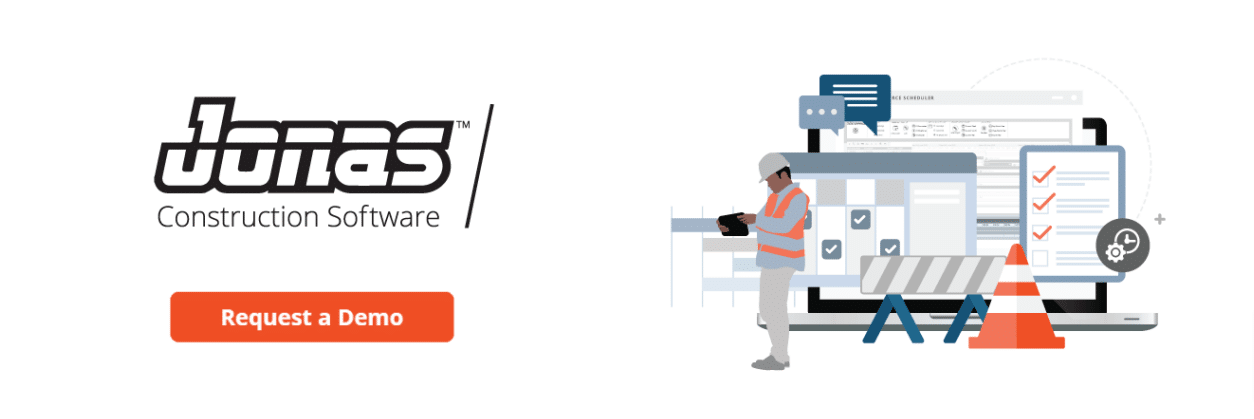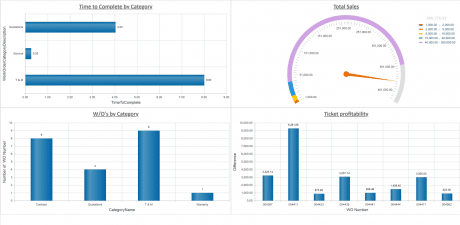Last Updated on July 3, 2024
Dec 16, 2019
A commonly confused pair of terms in the construction industry are construction management and project management. They are often used interchangeably under the same definition, when in reality, there are major defining differences between the two. To differentiate construction management from project management, we can take a closer look at the roles each require and the expectations that fall within the respective roles.
A construction project requires the marriage of project management and construction management to ensure a smooth execution of the project.
Project Management
In construction, project managers are responsible for managing all aspects of the construction project and balancing the entire budget, which includes overseeing the construction management side. Individuals in this role often come from an administrative rather than a technical background, which helps them guide the project to completion while communicating the owner’s needs throughout the project.
A project manager’s primary responsibility is to ensure that the project is completed on time and on budget while still respecting the owner’s requirements in the process. They commonly have a bachelor’s degree, with a master’s degree required for larger projects and involvement in design-build projects.
Construction Management
Under construction management, all on-site operations pertaining to the construction project fall on the construction manager. Their responsibilities include executing a technically sound structure, management of labor issues, as well as the flow of materials onto the site for the construction process. The budget for construction management is a portion of the project manager’s overall budget and covers the cost of the structure. A construction manager often has directly worked on construction sites and is very familiar with pre-construction and construction processes.
Can you operate a construction project without project management or construction management?
A recent industrial building constructed for a manufacturing company did not have a project manager, and the construction manager on site was not effective in staying on top of the project’s tasks or utilizing software tools to manage the tasks for an efficient workflow. The structure was over six months past the due date and there was insufficient air exchange required for the facility. Furthermore, the manufacturing company hired additional welders to commence work for the scheduled due date and had to continue paying them during the delay.
Upon discovering the issues with the air exchange system, the manufacturing company rescinded out of the contract and the building owner was burdened with an abandoned commercial property and no prospective buyers in the downward trending market.
The absence of a project manager to oversee the complete project and construction management ultimately failed the project. There was an apparent lack of communication among the manufacturing company’s needs, building owner and the construction company throughout the course of the project, which a project manager could have mediated. Furthermore, the project would have been completed on time or closer to the original due date, with appropriate air exchange equipment to ensure the manufacturer could meet OSHA requirements.
As the construction industry continues to evolve, more expectations are imposed on construction businesses to deliver projects quicker and more efficiently. As demonstrated above, a smooth collaboration between project management and construction management is required to stay on top of all areas of the project. Digitalization with robust tools creates a seamless handoff of information between the construction manager and the project manager at the time of commission, lowering the amount of time spent following up on details after the project’s construction phase has been completed.
A fully-integrated construction management software can house all the information required to execute construction and service projects, automate and streamline processes to expedite timelines and eliminate opportunities for human error on manual entries. With construction management software, a project manager can move most of their paperwork to a digital environment, making it easier to obtain approval for additional costs or change orders quickly. Project managers can also review any area of the construction project and drill down to review utilization and profitability. If any changes or concerns need to be addressed, the project manager can respond immediately to prevent any issues from occurring during the project. Furthermore, documentation and reporting are improved for better transparency between stakeholders and construction and service businesses.
Whether your focus is on construction management or project management, keeping your workflow and task list working effectively and efficiently is vital to your company’s bottom line. Digital transformation makes this facet of your job more important than ever so that your company can remain agile in changing market conditions. For more information on how construction management software can advance your business, speak with an account rep today or schedule a demo with us.







